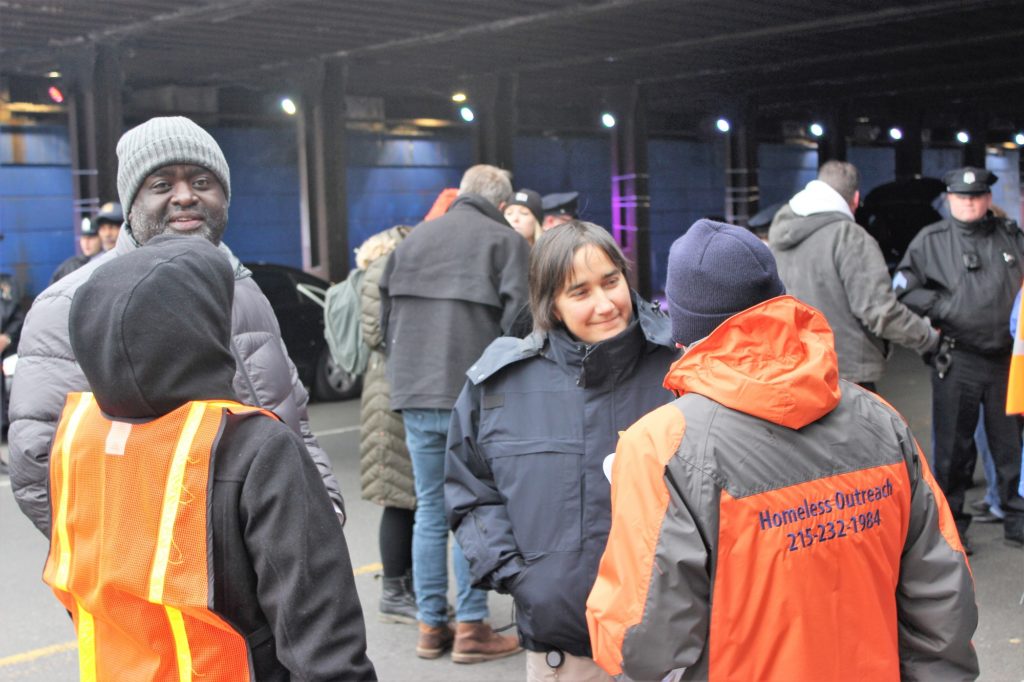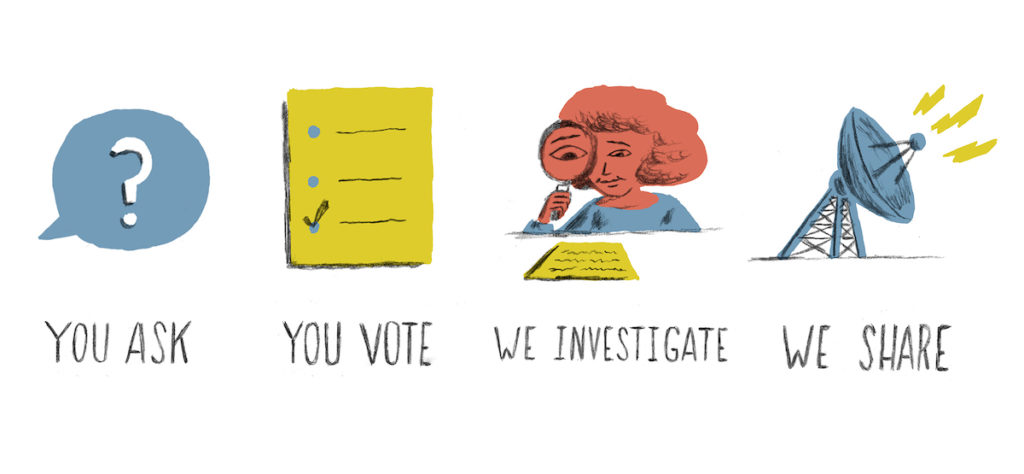Philly’s Roadmap to Homes removes barriers to shelter, employs strategies from ‘Housing First’ programs
 March 29, 2019
Category: Featured, Long, Results
March 29, 2019
Category: Featured, Long, Results
Disclosures
Corrections: The previous headline on this piece included a mistake: Philadelphia was not the first city in the nation to implement Housing First, rather it was the first to implement it for people using opioids. (3/29/19, 2:19 p.m.) The piece has further been modified throughout to reflect that OHS' description of "Housing First" is different than the definition other "Housing First" organizations use. (3/31/19, 8:45 a.m.)It used to be that Philadelphians experiencing homelessness always had something to prove, before they could receive housing.
They’d be questioned by officials about employment, if they were using substances like drugs or alcohol or asked queries related to citizenship status. But how do you even begin to look for work without a roof over your head
That’s why the city’s Office of Homeless Services adopted low barriers to shelter and what it’s calling “Housing First”’ — an approach that first secures housing so that other important elements in life fall more easily into place.
According to Roberta Cancellier, the director of housing for OHS, “Housing First” was the guiding principle in OHS’ Roadmap to Homes, their 2018 strategic plan to reduce homelessness in the city.
The terminology is confusing, however. The national model of “Housing First” is somewhat different than what Cancellier describes. That focuses on finding housing for individuals experiencing long-term chronic homelessness, and was pioneered in Philadelphia by Horizon House in the early 2000s, and then taken on by Pathways to Housing PA in 2008. In 2016, Philadelphia became the first city in the country to use that housing first model with people with opioid use disorders, in a program Pathways to Housing PA instituted.
Differences in approach and questions of terminology aside, one of our readers simply wants to know whether the city’s plan is working.
He submitted that question to us (learn how to ask us to investigate something here), so we took the question directly to OHS leadership to find out more.
Cancellier said their approach has not only been successful, but is improving over time.
"At the end of the day, what we're trying to solve is a housing crisis."
“We have revamped over the last several years, all of those rules that sometimes exclude people who need help most,” Cancellier said about the effectiveness of their plan. “And instead made it low-barrier, like you may come in, you can come as you are because at the end of the day, what we’re trying to solve is a housing crisis. That’s our role and our job at homeless services.
“If we can get a person to a permanent housing setting, 95 percent of the time or more, they are not going to return to homelessness, they’re going to stay in that setting,” she added.
The implementation of OHS’ plan meant really looking at what was the issue people who were homeless were experiencing, which was the lack of a place to stay. And to receive it, you don’t need ID, you don’t need to be a citizen and you don’t need to be free of substance usage.
The first step to OHS’ approach is through homelessness prevention. OHS attempts to help individuals connect with family or friends that might lend them a place to stay. The office also has initiatives to help people pay rent.
When that doesn’t work, that’s when temporary shelters come in. OHS has providers throughout the city where individuals needing housing can find emergency placement. These include churches and other nonprofits.
It’s important to note that temporary shelters are not considered part of the national housing-first model, because temporary shelters cannot be considered housing. But Cancellier says that OHS has a housing-first mindset towards those seeking assistance from temporary housing. It’s all about lowering barriers.
Broad Street Ministries works closely with OHS in its efforts to address homelessness. BSM doesn’t provide housing, but is an example of the low-barrier to service mindset integral to OHS’ plan.
They provide meals, medical assistance and a place where their guests can receive mail. Robert Rivera, 16, has used Broad Street’s services on and off for the last three years.
Rivera enjoys meeting with others who are homeless and sharing his story with them. Two times a month, he joins with friends to help feed others experiencing homelessness in Center City.
“I know I’m safe and secure,” Rivera said about using services at BSM, as compared to safety concerns he’s experienced at other city shelters.
George Matthews experienced homelessness at a young age like Rivera, but also at two other instances in his life.
Most recently, he and his girlfriend were evicted from their home in early March and used services at Broad Street Ministries for two weeks.
"I know I’m safe and secure."
He said the church gave them the resources they needed during a critical time.
Without low-barrier emergency shelter, Rivera and Matthews would have faced additional obstacles before their needs could be fully met.
Cancellier said not all cases of homelessness are the same. Everyone needs something different to try and get back on their feet, she said. Her office is continuing to alter their approach to reduce any potential barriers to housing.
“It’s not a one size fits all,” Cancellier said. “And so the path out of shelter, or transitional housing is different for everyone.”
“But the goal for everybody is to help them get to a permanent place where they can continue to thrive and improve,” she said.
https://modules.wearehearken.com/broke-in-philly/embed/2698.js
Project
Broke in PhillyTrending News











